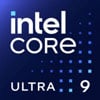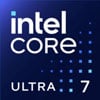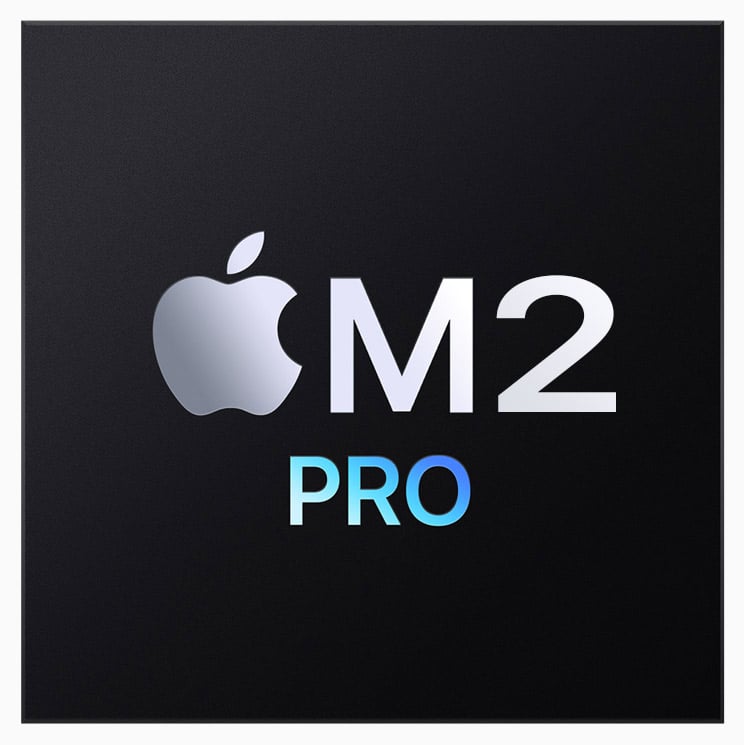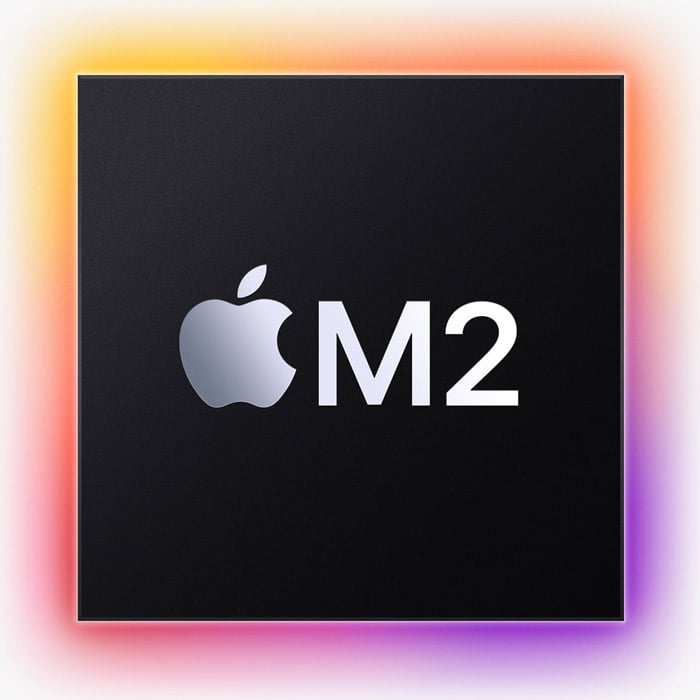
Apple M1 Pro (8-CPU) Benchmark, Test and specs
Last updated:
The Apple M1 Pro (8-CPU) has 8 CPU cores and can process 8 threads at the same time. The processor was presented in Q3/2021 and is based on the 1. Generation of the Apple M series series. In the Geekbench 5 benchmark, the Apple M1 Pro (8-CPU) achieved a result of 1,768 points (single-core) or 9,996 points (multi-core).

| Name: | Apple M1 Pro (8-CPU) |
|---|---|
| Family: | Apple M series (23) |
| CPU group: | Apple M1 (9) |
| Architecture: | M1 |
| Segment: | Mobile |
| Generation: | 1 |
| Predecessor: | -- |
| Successor: | -- |
CPU Cores and Base Frequency
The Apple M1 Pro (8-CPU) has 8 cores. The clock frequency of the Apple M1 Pro (8-CPU) is 0.60 GHz (3.20 GHz). An initial performance assessment can be made using the number of CPU cores.
| CPU Cores / Threads: | 8 / 8 |
|---|---|
| Core architecture: | hybrid (big.LITTLE) |
| A-Core: | 6x Firestorm |
| B-Core: | 2x Icestorm |
| Hyperthreading / SMT: | No |
|---|---|
| Overclocking: | No |
| A-Core Frequency: | 0.60 GHz (3.20 GHz) |
| B-Core Frequency: | 0.60 GHz (2.06 GHz) |
Artificial Intelligence and Machine Learning
Processors with the support of artificial intelligence (AI) and machine learning (ML) can process many calculations, especially audio, image and video processing, much faster than classic processors. Algorithms for ML improve their performance the more data they have collected via software. ML tasks can be processed up to 10,000 times faster than with a classic processor.
| AI hardware: | Apple Neural Engine |
|---|---|
| AI specifications: | 16 Neural cores @ 11 TOPS |
Internal Graphics
The Apple M1 Pro (8-CPU) has an integrated graphics that the system can use to efficiently play back videos. The Apple M1 Pro (8-CPU) has the Apple M1 Pro (14 Core) installed, which has 224 streaming multiprocessors (1792 shaders).
| GPU name: | Apple M1 Pro (14 Core) |
|---|---|
| GPU frequency: | 0.39 GHz |
| GPU (Turbo): | 1.30 GHz |
| Compute units: | 224 |
| Shader: | 1792 |
| Hardware Raytracing: | No |
| Release date: | Q3/2021 |
| Max. displays: | 3 |
|---|---|
| Generation: | 1 |
| Direct X: | -- |
| Technology: | 5 nm |
| Max. GPU Memory: | 32 GB |
| Frame Generation: | No |
Hardware codec support
Processors with integrated graphics can process video codecs faster. Support for modern codecs can significantly increase system efficiency during video playback.
| h265 / HEVC (8 bit): | Decode / Encode |
|---|---|
| h265 / HEVC (10 bit): | Decode / Encode |
| h264: | Decode / Encode |
| VP8: | Decode |
| VP9: | Decode / Encode |
| AV1: | No |
|---|---|
| AVC: | Decode |
| VC-1: | Decode |
| JPEG: | Decode / Encode |
Memory & PCIeThe Apple M1 Pro (8-CPU) supports a maximum of 32 GB memory. Depending on the mainboard, the processor can use a maximum of 2 (Dual Channel) memory channels. This results in a maximum bandwidth of the main memory of 102.4 GB/s. |
|
| Memory type: | Memory bandwidth: |
|---|---|
| LPDDR5-6400 | 102.4 GB/s |
| Max. Memory: | 32 GB |
| Memory channels: | 2 (Dual Channel) |
| ECC: | No |
| PCIe: | 4.0 |
| PCIe Bandwidth: | -- |
Thermal ManagementThe Apple M1 Pro (8-CPU) has a TDP of 35 W. Based on the TDP, the system manufacturer can and must adapt the cooling solution to the processor. |
|
|---|---|
| TDP (PL1 / PBP): | 35 W |
| TDP (PL2): | -- |
| TDP up: | -- |
| TDP down: | -- |
| Tjunction max.: | -- |
Technical details
Modern production reduces the waste heat of a processor and increases its efficiency. The Apple M1 Pro (8-CPU) is made in 5 nm and has 24.00 MB cache.
| Technology: | 5 nm |
|---|---|
| Chip design: | Chiplet |
| Socket: | -- |
| L2-Cache: | 24.00 MB |
| L3-Cache: | -- |
| AES-NI: | Yes |
| Operating systems: | macOS |
| Virtualization: | Apple Virtualization Framework |
|---|---|
| Instruction set (ISA): | Armv8.5-A (64 bit) |
| ISA extensions: | Rosetta 2 x86-Emulation |
| Release date: | Q3/2021 |
| Release price: | -- |
| Part Number: | APL 1103 |
| Documents: | -- |
Rate this processor
Benchmark results

The benchmark results for the Apple M1 Pro (8-CPU) have been carefully checked by us. We only publish benchmark results that have been created by us or that have been submitted by a visitor and then checked by a team member. All results are based on and fullfill our benchmark guidelines.
Cinebench 2024 (Single-Core)
The Cinebench 2024 benchmark is based on the Redshift rendering engine, which is also used in Maxon's 3D program Cinema 4D. The benchmark runs are each 10 minutes long to test whether the processor is limited by its heat generation.

|
Apple M1 Ultra (64-GPU)
20C 20T @ 3.20 GHz |
||

|
Intel Core i7-12700K
12C 20T @ 5.00 GHz |
||

|
Intel Core i7-12700KF
12C 20T @ 5.00 GHz |
||
|
|
Apple M1 Pro (8-CPU)
8C 8T @ 3.20 GHz |
||

|
Apple M1 Pro (10-CPU 14-GPU)
10C 10T @ 3.20 GHz |
||

|
Apple M1 Pro (10-CPU 16-GPU)
10C 10T @ 3.20 GHz |
||

|
Intel Core i7-13850HX
20C 28T @ 5.30 GHz |
||
Cinebench 2024 (Multi-Core)
The Multi-Core test of the Cinebench 2024 benchmark uses all cpu cores to render using the Redshift rendering engine, which is also used in Maxons Cinema 4D. The benchmark run is 10 minutes long to test whether the processor is limited by its heat generation.

|
Intel Core i9-9900K
8C 16T @ 5.00 GHz |
||

|
AMD Ryzen 5 5600X
6C 12T @ 4.60 GHz |
||

|
Intel Core i5-1240P
12C 16T @ 4.40 GHz |
||
|
|
Apple M1 Pro (8-CPU)
8C 8T @ 3.20 GHz |
||

|
Intel Core i7-10700KF
8C 16T @ 5.10 GHz |
||

|
Intel Core i7-10700K
8C 16T @ 5.10 GHz |
||

|
AMD Ryzen 5 5500GT
6C 12T @ 4.40 GHz |
||
Cinebench R23 (Single-Core)
Cinebench R23 is the successor of Cinebench R20 and is also based on the Cinema 4 Suite. Cinema 4 is a worldwide used software to create 3D forms. The single-core test only uses one CPU core, the amount of cores or hyperthreading ability doesn't count.

|
AMD Ryzen 7 PRO 5750G
8C 16T @ 4.60 GHz |
||

|
Intel Core i7-1185G7
4C 8T @ 4.80 GHz |
||

|
Intel Core i9-11900T
8C 16T @ 4.90 GHz |
||
|
|
Apple M1 Pro (8-CPU)
8C 8T @ 3.20 GHz |
||

|
Apple M1 Ultra (48-GPU)
20C 20T @ 3.20 GHz |
||

|
Apple M1 Ultra (64-GPU)
20C 20T @ 3.20 GHz |
||

|
Apple M1 Pro (10-CPU 14-GPU)
10C 10T @ 3.20 GHz |
||
Cinebench R23 (Multi-Core)
Cinebench R23 is the successor of Cinebench R20 and is also based on the Cinema 4 Suite. Cinema 4 is a worldwide used software to create 3D forms. The multi-core test involves all CPU cores and taks a big advantage of hyperthreading.

|
AMD Ryzen 5 3600X
6C 12T @ 4.20 GHz |
||

|
Intel Core i7-1355U
10C 12T @ 1.70 GHz |
||

|
Sony Playstation 5
8C 16T @ 3.50 GHz |
||
|
|
Apple M1 Pro (8-CPU)
8C 8T @ 3.20 GHz |
||

|
AMD Ryzen 7 5700U
8C 16T @ 3.30 GHz |
||

|
Intel Core i5-11500H
6C 12T @ 3.80 GHz |
||

|
AMD Ryzen 5 5600HS
6C 12T @ 3.50 GHz |
||
Geekbench 5, 64bit (Single-Core)
Geekbench 5 is a cross plattform benchmark that heavily uses the systems memory. A fast memory will push the result a lot. The single-core test only uses one CPU core, the amount of cores or hyperthreading ability doesn't count.

|
Intel Core i5-12490F
6C 12T @ 4.60 GHz |
||

|
Intel Core i3-13100
4C 8T @ 4.50 GHz |
||

|
Intel Core i3-13100F
4C 8T @ 4.50 GHz |
||
|
|
Apple M1 Pro (8-CPU)
8C 8T @ 3.20 GHz |
||

|
Apple M1 Pro (10-CPU 14-GPU)
10C 10T @ 3.20 GHz |
||

|
Apple M1 Pro (10-CPU 16-GPU)
10C 10T @ 3.20 GHz |
||

|
Intel Core i5-12600HX
12C 16T @ 4.60 GHz |
||
Geekbench 5, 64bit (Multi-Core)
Geekbench 5 is a cross plattform benchmark that heavily uses the systems memory. A fast memory will push the result a lot. The multi-core test involves all CPU cores and taks a big advantage of hyperthreading.

|
AMD Ryzen 9 6900HS
8C 16T @ 3.80 GHz |
||

|
Intel Core i7-11700B
8C 16T @ 4.00 GHz |
||

|
Intel Xeon W-2245
8C 16T @ 4.50 GHz |
||
|
|
Apple M1 Pro (8-CPU)
8C 8T @ 3.20 GHz |
||

|
Intel Xeon E-2378
8C 16T @ 2.60 GHz |
||

|
AMD Ryzen Z1 Extreme
8C 16T @ 3.30 GHz |
||

|
Intel Xeon Gold 5119T
14C 28T @ 2.20 GHz |
||
Geekbench 6 (Single-Core)
Geekbench 6 is a benchmark for modern computers, notebooks and smartphones. What is new is an optimized utilization of newer CPU architectures, e.g. based on the big.LITTLE concept and combining CPU cores of different sizes. The single-core benchmark only evaluates the performance of the fastest CPU core, the number of CPU cores in a processor is irrelevant here.

|
AMD Ryzen 5 7540U
6C 12T @ 4.90 GHz |
||

|
AMD Ryzen 5 7545U
6C 12T @ 4.90 GHz |
||

|
AMD Ryzen 5 8540U
6C 12T @ 4.90 GHz |
||
|
|
Apple M1 Pro (8-CPU)
8C 8T @ 3.20 GHz |
||

|
Apple M1 Ultra (48-GPU)
20C 20T @ 3.20 GHz |
||

|
Apple M1 Ultra (64-GPU)
20C 20T @ 3.20 GHz |
||

|
Apple M1 Pro (10-CPU 14-GPU)
10C 10T @ 3.20 GHz |
||
Geekbench 6 (Multi-Core)
Geekbench 6 is a benchmark for modern computers, notebooks and smartphones. What is new is an optimized utilization of newer CPU architectures, e.g. based on the big.LITTLE concept and combining CPU cores of different sizes. The multi-core benchmark evaluates the performance of all of the processor's CPU cores. Virtual thread improvements such as AMD SMT or Intel's Hyper-Threading have a positive impact on the benchmark result.

|
Intel Xeon E-2388G
8C 16T @ 3.20 GHz |
||

|
Intel Core i5-1350P
12C 16T @ 1.90 GHz |
||

|
Intel Core i9-7940X
14C 28T @ 3.70 GHz |
||
|
|
Apple M1 Pro (8-CPU)
8C 8T @ 3.20 GHz |
||

|
Intel Core i7-12650H
10C 16T @ 3.80 GHz |
||

|
Intel Core i5-12500
6C 12T @ 4.00 GHz |
||

|
AMD Ryzen 7 5800
8C 16T @ 4.00 GHz |
||
iGPU - FP32 Performance (Single-precision GFLOPS)
The theoretical computing performance of the internal graphics unit of the processor with simple accuracy (32 bit) in GFLOPS. GFLOPS indicates how many billion floating point operations the iGPU can perform per second.

|
Apple M3 Pro (11-CPU 14-GPU)
Apple M3 Pro (14 Core) @ 1.40 GHz |
||

|
Intel Core Ultra 9 185H
Intel Iris Xe 8 Core Graphics 128 EUs (Meteor Lake) @ 2.35 GHz |
||

|
Qualcomm Snapdragon X Elite (X1E-84-100)
Qualcomm Adreno X Elite/Plus @ 1.20 GHzNot verified |
||
|
|
Apple M1 Pro (8-CPU)
Apple M1 Pro (14 Core) @ 1.30 GHz |
||

|
Apple M1 Pro (10-CPU 14-GPU)
Apple M1 Pro (14 Core) @ 1.30 GHz |
||

|
Intel Core Ultra 7 165HL
Intel Iris Xe 8 Core Graphics 128 EUs (Meteor Lake) @ 2.30 GHz |
||

|
Intel Core Ultra 7 165H
Intel Iris Xe 8 Core Graphics 128 EUs (Meteor Lake) @ 2.30 GHz |
||
Blender 3.1 Benchmark
In the Blender Benchmark 3.1, the scenes "monster", "junkshop" and "classroom" are rendered and the time required by the system is measured. In our benchmark we test the CPU and not the graphics card. Blender 3.1 was presented as a standalone version in March 2022.

|
AMD Ryzen 9 5900HX
8C 16T @ 4.20 GHz |
||

|
AMD Ryzen 7 3800X
8C 16T @ 4.20 GHz |
||

|
AMD Ryzen 7 5800HS
8C 16T @ 3.50 GHz |
||
|
|
Apple M1 Pro (8-CPU)
8C 8T @ 3.20 GHz |
||

|
Intel Core i7-10700F
8C 16T @ 4.60 GHz |
||

|
Intel Core i7-10700
8C 16T @ 4.60 GHz |
||

|
Intel Core i5-12500
6C 12T @ 4.00 GHz |
||
CPU performance per watt (efficiency)
Efficiency of the processor under full load in the Cinebench R23 (multi-core) benchmark. The benchmark result is divided by the average energy required (CPU package power in watts). The higher the value, the more efficient the CPU is under full load.

|
Apple M1 Pro (10-CPU 16-GPU)
12,390 CB R23 MC @ 45 W |
||

|
Apple M1 Max (24-GPU)
12,402 CB R23 MC @ 45 W |
||

|
Apple M1 Max (32-GPU)
12,402 CB R23 MC @ 45 W |
||
|
|
Apple M1 Pro (8-CPU)
9,569 CB R23 MC @ 35 W |
||

|
AMD Ryzen 5 7645HX
13,824 CB R23 MC @ 51 W |
||

|
Intel Core i7-1360P
10,422 CB R23 MC @ 39 W |
||

|
AMD Ryzen 5 7520U
5,214 CB R23 MC @ 20 W |
||
Performance for Artificial Intelligence (AI) and Machine Learning (ML)
Processors with the support of artificial intelligence (AI) and machine learning (ML) can process many calculations, especially audio, image and video processing, much faster than classic processors. The performance is given in the number (trillions) of arithmetic operations per second (TOPS).

|
Qualcomm Snapdragon 778G
8C 8T @ 2.40 GHz |
||

|
Qualcomm Snapdragon 778G+
8C 8T @ 2.50 GHz |
||

|
Qualcomm Snapdragon 780G
8C 8T @ 2.40 GHz |
||
|
|
Apple M1 Pro (8-CPU)
8C 8T @ 0.60 GHz |
||

|
Apple M1 (7-GPU)
8C 8T @ 0.60 GHz |
||

|
Apple M1 Pro (10-CPU 14-GPU)
10C 10T @ 0.60 GHz |
||

|
Apple M1 Max (24-GPU)
10C 10T @ 0.60 GHz |
||
Benchmarks

Cinebench 2024 (SC)
272 entries
272 entries

Cinebench 2024 (MC)
271 entries
271 entries

Cinebench R23 (SC)
586 entries
586 entries

Cinebench R23 (MC)
565 entries
565 entries

Geekbench 5 (SC)
2,488 entries
2,488 entries

Geekbench 5 (MC)
2,461 entries
2,461 entries

Geekbench 6 (SC)
1,755 entries
1,755 entries

Geekbench 6 (MC)
1,703 entries
1,703 entries

FP32 SP (iGPU)
2,042 entries
2,042 entries

Blender 3.1 Benchmark
212 entries
212 entries

CPU performance per watt (efficiency)
109 entries
109 entries

AI / ML Performance
119 entries
119 entries
News and articles for the Apple M1 Pro (8-CPU)

Apple M2 Pro with more CPU cores and production in 3 nm ?
Posted by Stefan on 2022-06-28
After Apple surprisingly presented the normal Apple M2 processor as the first successor to the Apple M1 already in June 2022, the Apple M2 Pro and the Apple M2 Max may follow in autumn. The difference in performance compared to the basic version could be even greater this time and range from 25 to 40 percent.
In this article we describe how Apple could realize this and why the price should also go up.
In this article we describe how Apple could realize this and why the price should also go up.

Apple M2 vs Apple M1 - What are the differences?
Posted by Stefan on 2022-06-09
During WWDC 2022 on June 6th, 2022 Apple surprisingly presented its new Apple M2 processor. This will initially be installed in a completely revised Apple MacBook Air with 13.6 inches, a even thinner form factor and new colors. Apple also updated the already known (old) Apple MacBook Pro 13.3 with touch bar.
Many leakers had counted on Apple not presenting its new second-generation M processor until the fall. But things turned out differently. And there is very likely a reason for that: the improvements in the Apple M2 are limited compared to the predecessor.
Many leakers had counted on Apple not presenting its new second-generation M processor until the fall. But things turned out differently. And there is very likely a reason for that: the improvements in the Apple M2 are limited compared to the predecessor.
Popular comparisons
back to index




